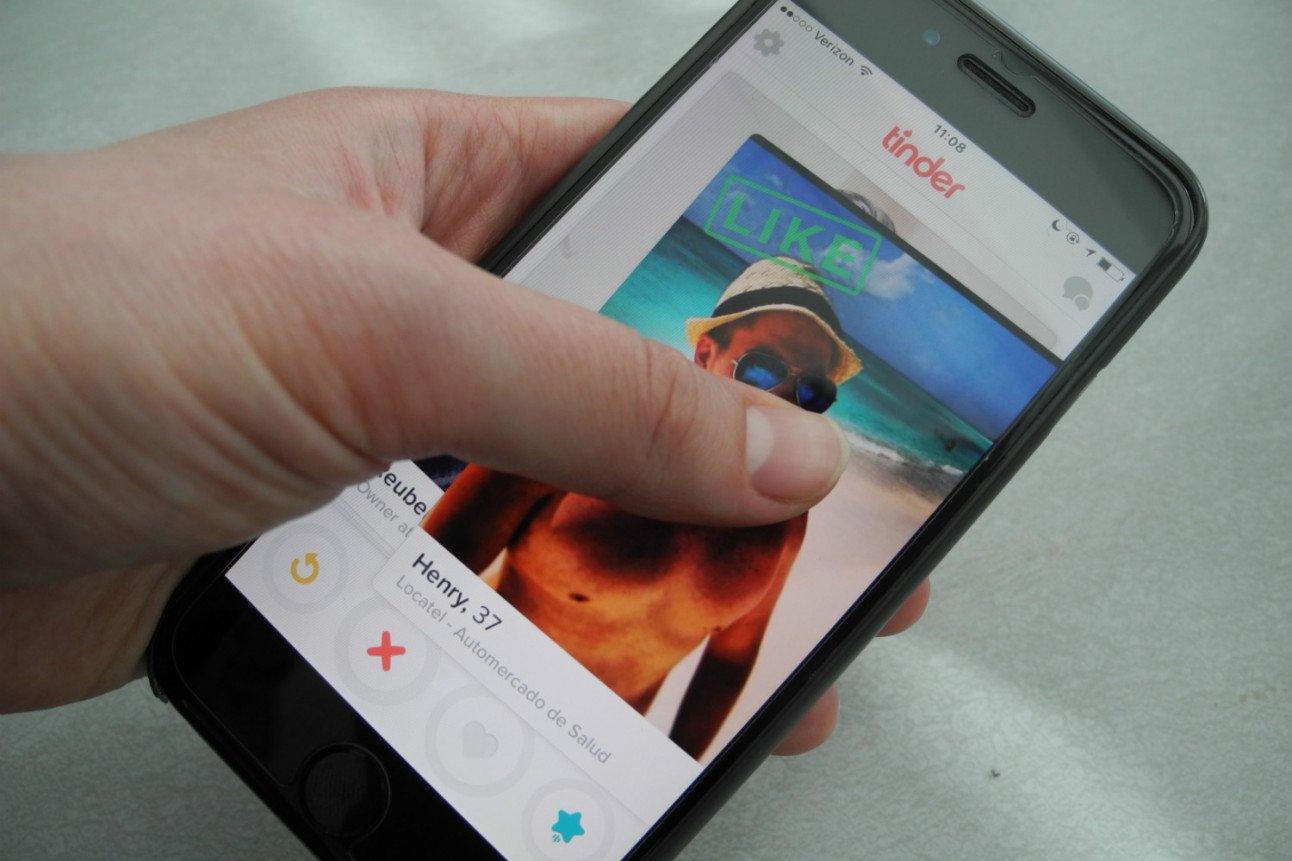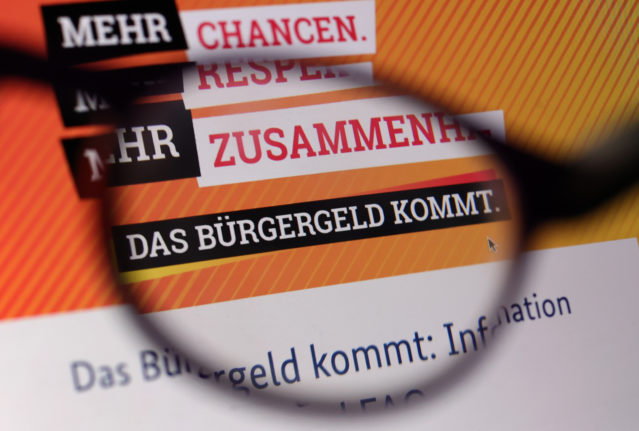With strict rules in place on meeting up with people outside of your household and social distancing, getting up close and personal with others has never been so complex.
Germany’s contact restrictions still state that ‘members of one household may only meet with one other person from a different household’.
The government also stated that social circles should be ‘constant and as small as possible’. These measures will remain in place at least until March 7th when the shutdown may be loosened depending on numbers.
To comply with the isolation measures in place, many open relationships have been forced to alter their dynamics. For some, this has meant closing the relationship completely, while for others it has resulted in seeing one other person outside of the relationship.
In a city that is known for being notoriously unattached, Covid-19 has led to polyamorous and non-monogamous couples renegotiating their rules.
READ ALSO: What's the advice for sex and dating in Germany during the coronavirus crisis?
Changing their rules based on Germany's rules
For Hugo, 38 and Lotte, 30, who are based in Berlin, their open relationship has mirrored the lockdown situation in Germany – becoming monogamous when the measures are in place, and open again once they have been relaxed.
The initial conversation about monogamy, Lotte says, first came about at the end of March 2020, Germany introduced its first lockdown amid rising Covid-19 numbers.
“I did not want to say anything at first because I did not want to make a decision that would affect Hugo on my own but because of the pandemic I didn’t feel comfortable and I had to say something. I felt guilty at first, but Hugo respected it.”

Photo: DPA
Lotte says it was not just the risk of catching the virus herself, but due to the nature of her job that she felt compelled to stay safe.
“I am working as a psychologist, and last year I spent a lot of time in the clinic and I was encountering those from high-risk groups,” she said. “So, I was more concerned about giving the virus to other people.”
While Hugo says that his perception of the risk was low, he was happy to compromise and close the relationship while government measures were in place.
“I was not enthusiastic about being monogamous, but I recognize that I am less risk averse than Lotte, and so it is on my side to compromise to ensure she feels comfortable.”
When the lockdown measures were relaxed in June 2020, Hugo and Lotte said they opened their relationship once again. They said that the experience of monogamy did not change how they feel about their preferred model of relationships.
“We know that we both prefer to be open, but we were fine when it was just the two of us. We accepted the external circumstances, but it did not fundamentally change our ideas about relationships” explained Hugo.
READ ALSO: 'Sex is easy to find in Berlin': Foreigners on love, hook-ups and friendship in Germany
When the case numbers started rising in Germany in the autumn, they once again decided to be monogamous, but it remains to be seen for how long. Lotte shares that if the shutdown were to last for many months, they would reopen the discussion and find another solution.
However, they both agree that the lockdown measures brought them closer due to the amount of time they were spending together.
“When the pandemic started in March 2020, we had only been dating for a couple of months,” said Hugo. “My guess is that the lockdown got us to spend more time together. We came out of it knowing we want to be in a relationship.”
New lockdown, new rules
For others, their polyamorous relationship has not become monogamous, but has instead taken on new rules. Frederike, 30, who lives in Berlin, has been with her partner, Eike, for four years and three of these have been open.
However, since the global pandemic started, Frederike and her partner decided they would just see one other person outside of their relationship.
“We wanted to respect the restrictions that were in place, and we didn’t want to contribute to the situation becoming worse. We were already both in other relationships at that moment, so we continued to just see this one other person, and it has been like that since the lockdown began.”
While Frederike says that the experience has not changed her opinion on relationships in a significant way, she has discovered that she has enjoyed the consistency of seeing one other person for a longer period outside of her relationship.
“I felt a bit more relaxed. Sometimes it felt like there was a lot going on and it was causing some trouble between my partner and me. I realized that I like having constant things in my life,” she said.
Frederike says one of the most difficult things she faced was when she had to quarantine after coming into contact with someone who had the virus.
She shares that while she was in isolation, her partner continued seeing the person he was involved with outside of their relationship.
“Eike and I were planning to go abroad together as he had a work trip planned. But then I had to isolate and I wasn’t able to see him before he left Berlin. During this time, he was meeting with the person he is still seeing now, and it felt awful that they were able to meet each other and I couldn’t see him.
“I did not want to restrict him, but knowing that they could meet and I couldn’t see him before his departure was pretty hard for me.”
“I was always concerned that if one of us had to quarantine while the other one did not, it would create jealousy. However, we have discussed that if this happened, we could be monogamous for this period.”

Photo: DPA
'It's irresponsible not to communicate'
For those at the beginning of their relationships, the conversation of exclusivity is coming up more quickly than usual. Claire, 28, based in Berlin, is currently using different dating apps to meet new people but says she is more wary about multi-dating.
READ ALSO: Dating apps: The unlikely tool that helped me settle in Germany
“Usually, I wouldn’t ask early on if the person I am dating is seeing other people, but as the case numbers are still high, I feel it is irresponsible not to communicate about this sort of thing.”
Although Germany’s lockdown measures are expected to be relaxed soon, it remains to be seen when life will open fully again. In the meantime, Berlin’s polyamorous and non-monogamous couples continue to navigate the changing rules and regulations around the pandemic.
For Hugo, the end of lockdown is not just about meeting new people but returning to his way of life: “When the first lockdown ended, I was excited that our relationship was open again, not just in a sexual sense, but it gave me the feeling that things are returning to how they were before the virus.
“It gave me that reconnection to a normal life again.”




 Please whitelist us to continue reading.
Please whitelist us to continue reading.
Wow – poor Hugo and Lotte. They can’t do what they used to do! z z z. Honestly….
who cares.